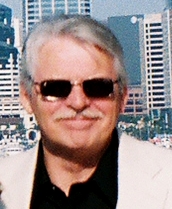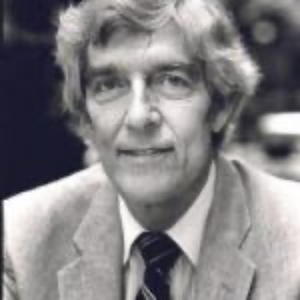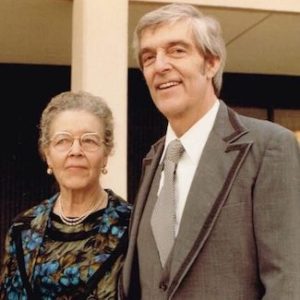 What we are about to share are the first two parts of a seven part transcript by Nicholas Gonzalez, M.D. speaking at the World Research Foundation. These records were recently discovered by the widow of Dr. Gonzalez and have been made available to the public. Over the next few weeks, we will continue to post the subsequent segments of Dr. Gonzalez’s story. The following transcript in addition to additional commentary was BROADCAST on June 29, 2022 on To Health With You! HERE is the LINK to listen! – Dr. Kelley’s Story ~ How It ALL Began ~ Editor
What we are about to share are the first two parts of a seven part transcript by Nicholas Gonzalez, M.D. speaking at the World Research Foundation. These records were recently discovered by the widow of Dr. Gonzalez and have been made available to the public. Over the next few weeks, we will continue to post the subsequent segments of Dr. Gonzalez’s story. The following transcript in addition to additional commentary was BROADCAST on June 29, 2022 on To Health With You! HERE is the LINK to listen! – Dr. Kelley’s Story ~ How It ALL Began ~ Editor
Dr. Kelley Gets Cancer

Nicholas Gonzalez, M.D.
I’ve been asked to talk slowly. Now, its genetically, physiologically and morally impossible for me to do that but I’ll try. But probably fail. I’m going to talk about cancer today, particularly about William Donald Kelley. Now for Dr. Kelley, cancer began with eye problems. He was riding down the road in his antique Cadillac he called “Twinkles,” and he noticed he was having trouble seeing street signs. He was 35 years old and had perfect vision up to that point. He didn’t pay much attention to it.
But over the ensuing months, his vision got progressively worse. He went to his ophthalmologist, who said, “Look, you’re 35 years old, you’re nearsighted, you need glasses.” Well, that wasn’t too big a deal, but about three months later, he noticed as he was working on his patients (now, he was an orthodontist, he did a lot of close work in patients’ mouths), and he noticed that he had trouble seeing the teeth clearly in his patients and doing the intricate work with pliers. So he went back to his ophthalmologist, who said, “This is kind of interesting, you need bifocals.” Now, this didn’t sit too kindly on Kelley’s soul, he thought 35 years old was too young for bifocals, but he wore them. And they seemed to work well for about three months, and then he noticed, well, with bifocals he could see the far distance well and he could read, and he could do his intricate work in his patients’ mouths okay, but the intermediate distances were getting kind of fuzzy.
This was unusual, so he went back to his ophthalmologist, who said, “You need trifocals, this is about the first time I’ve ever had a patient who needed trifocals.” Now, this was a blow to Dr. Kelley. Just about the time he needed trifocals, he started developing muscle cramps. Initially, they weren’t too serious, they were in his arms, and he figured this was because he was spending twelve hours a day working over his patients. But the pains got progressively worse, they were like severe charley-horses in his arms, then they evolved to involve his legs, and pretty soon he was getting terrible chest pains– in fact he ended up in the local emergency room three times with terrible chest pains, thinking it was a heart attack, but his EKGs were normal, so he went to his local doctor, who just suggested he was working too hard and needed to take more time off. Kelley did that, but the pains didn’t get any better.
 And just about the time he was having trouble with his muscle pains, his hair started to fall out. Now, he had a thick head of hair and baldness did not run in his family, so at age 35 when his hair started to fall out, this was serious. So he went back to his doctor, and the doctor said, “Well, this is just stress and aging, there’s nothing you can do about it.”
And just about the time he was having trouble with his muscle pains, his hair started to fall out. Now, he had a thick head of hair and baldness did not run in his family, so at age 35 when his hair started to fall out, this was serious. So he went back to his doctor, and the doctor said, “Well, this is just stress and aging, there’s nothing you can do about it.”
Now, about the time his hair started to fall out, he developed a severe, cataclysmic depression. Now, Dr. Kelley had never been depressed a day in his life. This was a man who worked 14 hours a day as an orthodontist, loved his work, had a wonderful family, four kids, all adopted that he loved dearly, a good wife, he was very active in community affairs, he just wasn’t a depressed type, he had never been depressed, and now suddenly he would wake up in the morning with crying spells.
He wasn’t interested in his work, wasn’t interested in his family, he thought about chucking orthodonture to go live in the mountains of Colorado, which is very unusual for him. He went to his doctor and begged for anti-depressants, but the doctor said “no, you’re just working too hard, you have to take some more time off”. So, Kelley took more time off, and the depression got worse. Just about the time he was starting to get suicidal, his belly expanded suddenly, overnight, and he went to his doctor, who said, “You have to go into the hospital.”
Dr. Kelley was very well known in the Texas community where he lived, and they called in all the local surgeons and gastroenterologists, and the surgeon took one look at this man and said, “This guy’s got terminal cancer.”
This was about 1964 and in those days, they didn’t have sophisticated CAT-scans or ultrasounds, they just had simple ultrasound equipment and X-rays. They did a whole series of X-rays and found that there were lesions in his lungs that looked like metastatic disease, a huge tumor in his right hip, his liver was three times its normal size. It appeared they had a pancreatic tumor that had metastasized very quickly. The surgeon said he was too sick for surgery. The doctors told his wife he had four to six to eight weeks to live.
That was the bad news, but the news got even worse. His wife handled this sudden occurrence by packing up and leaving, leaving Dr. Kelley with four young kids and dying of cancer. Now, Dr. Kelley did what any sane man would do in a circumstance like that. He called his mother….
Dr. Kelley’s Mother to the Rescue
Now, Dr. Kelley’s mother, Velma, is kind of an unusual character, and I’ve talked about her before in my other lectures. You’d have to meet Mama Kelley to really appreciate her. She raised three sons on a dirt poor, Kansas farm, 80 acres, during the Depression. Her husband had died of a heart attack leaving her with three kids, and she got them through college and graduate school. Kelley’s older brother is a very famous dental surgeon, and his younger brother is an expert on Robert Browning the poet, in fact Professor Kelly runs the Browning Foundation and is world renowned for his work. And of course, then there’s this crazy Dr. Kelley the cancer doctor.
 Kelley called his mother and said, “Look, I have a problem,” and she said, “What’s the problem?” and he said, “Well, I’ve just been told I have six weeks to live, I’ve got four young kids and my wife left me. What am I going to do?”
Kelley called his mother and said, “Look, I have a problem,” and she said, “What’s the problem?” and he said, “Well, I’ve just been told I have six weeks to live, I’ve got four young kids and my wife left me. What am I going to do?”
Well, his mother got very angry with him. She said, “What you’re going to do is you’re going to get over your cancer. Those kids are adopted. If you die, those kids are going back to the orphanage, and I’m not going to take them, I’ve already raised three kids, so you’re going to get well.”
Kelley said to his mother, “That’s absolutely and totally impossible. I’ve had the best doctors in Texas tell me I have six to eight weeks to live with terminal pancreatic cancer.” His mother said, “Nonsense.” That day she got on a plane and flew down to Texas and walked into Kelley’s house to get him well.
Now how did Mama Kelley approach Dr. Kelly’s terminal prognosis? Well, the first thing she did was, she took all the food in his cupboards and threw it away. Kelley was probably the preeminent connoisseur of junk food that I ever knew. He knew the ingredients of every brand of chocolate bar, and he basically lived on Fritos and chocolate bars for years, so it wasn’t too surprising that at the age of 36 he would develop terminal cancer. His mother took that junk and threw it away. She was a very wise woman. She’d grown upon the land, had grown up on the farm, had raised farm animals and raised her kids according to very natural principals and good healthy food.
The first thing she did was she went to the local health food store and loaded up on fresh fruits, fresh vegetables, nuts, seeds, whole grains, no animal protein. And from that day she put her son on a very rigorous diet, a complete vegetarian diet, a complete raw foods diet, consisting of nothing but fresh fruits, vegetables, nuts, seeds, grains, beans, sprouted beans, that sort of thing. Absolutely no animal protein, no fish, no poultry, no red meat, no dairy products, no nothing.
This was a very difficult diet for Dr. Kelley to follow, because he liked Big Macs, he loved Hershey bars, he loved Fritos, but his mother wouldn’t allow those things in the house, so he had no choice but to do it. To his absolute total astonishment, two weeks passed then four weeks passed, and he felt a little stronger, six weeks passed, eight months passed and he didn’t die, three months passed, his mother walked into his bedroom one morning and said, “Okay, three months have passed, you’re getting better, it’s time for you to go back to work.”
He said, “Now wait a minute, I have terminal pancreatic cancer.” She said, “You’ve got four kids who’ve got to eat, and your wife emptied out your bank account. So, you’re going to work whether you want to or not,” and from that day he started seeing his patients again. He’d see a patient then sleep for about fifteen minutes, see a patient then sleep for about fifteen minutes. The miracle was first that he wasn’t dead, and secondly, that he really was getting better.
Dr. Kelley is a true scientist in the tradition of true scientists. Now scientists are different from the rest of us because they ask questions that the rest of us would be too lazy or too crazy to ask. He said, “I cannot believe that my mother is the first person in the history of the world who figured out that a diet of raw foods, nuts and grains, as horrible as it is, can stabilize cancer.” He said, “I can’t believe that she’s that smart.” So he went to his local library, he was feeling kind of feisty, so he went to the library to see what he could find…
